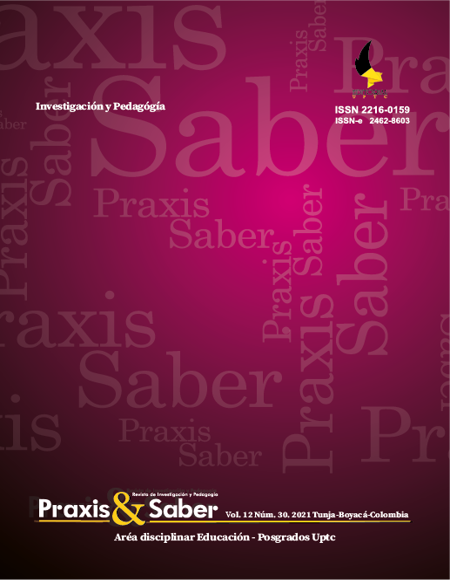Dynamics of school curriculum integration: interdisciplinarity in the production of knowledge

Abstract
It’s undeniable that changes are being made in the dynamics of curriculum integration in the contemporary school, not only because it is a requirement for changes in the modes of knowledge production at the social level (Gibbons and Others, 1997) or because they are part of the demands of going into questioning discipline, but because they are also transformations that are already being mobilized as neural axes of education policy both at the national and district level for at least a decade.
These dynamics definitely involve a complexization of school knowledge, its production and / or appropriation in our schools, at least from a theoretical-conceptual discussion and it is interesting that the educational policy enables this type of approach. In this context of discussion, this article aims to: (a) mobilize discussions around the contemporary configuration of school knowledge from integration processes; (b) to position discussions around the entry of interdisciplinarity into such processes; c) bet on the possibility of thinking about the models of curriculum integration in both forms of completion of school knowledge and (d) conducting a preliminary analysis of the models of curricular integration at national and district level.
Keywords
school integration, government policy, education
References
Black, Max. (1966). Modelos y metáforas. Estructura y función. Editorial Tecnos. Madrid.
Basarab, Nicolescu. (2002). La transdisciplinariedad. Manifiesto. Ediciones Du Rocher.
Klein, Julie Thompson. (2010). A taxonomy or Interdiciplinarity. En: Foreman et al (Eds) The Oxford handbook of interdisciplinarity. Oxfort University Press.
Not, Luis. (1983). Pedagogía del conocimiento. Fondo de Cultura Económica. México.
SED. (2011). Referentes conceptuales y metodológicos de la Reorganización Curricular por Ciclos.
MEN. (2016). Guía para el mejoramiento institucional. Fortalecimiento de los componentes curriculares. Dirección de Calidad de Educación Preescolar, Básica y Media. Documentos asociados: guía Nº 34.
Sotolongo Codina, Pedro Luis y Delgado Díaz, Carlos Jesús. (2006). La revolución contemporánea del saber y la complejidad social. Hacia unas ciencias sociales de nuevo tipo. CLACSO.
Tamayo y Tamayo (2003). El proceso de la investigación científica. Limusa. México.
Martínez, Carmen A; Molina, Adela; Reyes, Jaime. (2010). Conocimiento escolar en la didáctica de las ciencias: una aproximación al problema. En: Asociación Colombiana para la investigación en Ciencias Y Tecnología EDUCyT, Memorias, II congreso Nacional de investigación en educación en ciencias y tecnología. Junio 21 a 23, ISBN: 978-958-99491-1-5.
Sarmiento Medina, Pedro José (2013). Bioética ambiental y ecopedagogía: una tarea pendiente. En: Acta bioeth. vol.19 no.1 Santiago jun. http://dx.doi.org/10.4067/S1726-569X2013000100004. Acta Bioethica 2013; 19(1): 29-38.
Gumport, Patricia J y Snydman, Stuart K. (2002). The Formal Organization of Knowledge. An Analysis of Academic Structure. En: The Journal of Higher Education, Vol. 73, No. 3 (May/June 2002).
